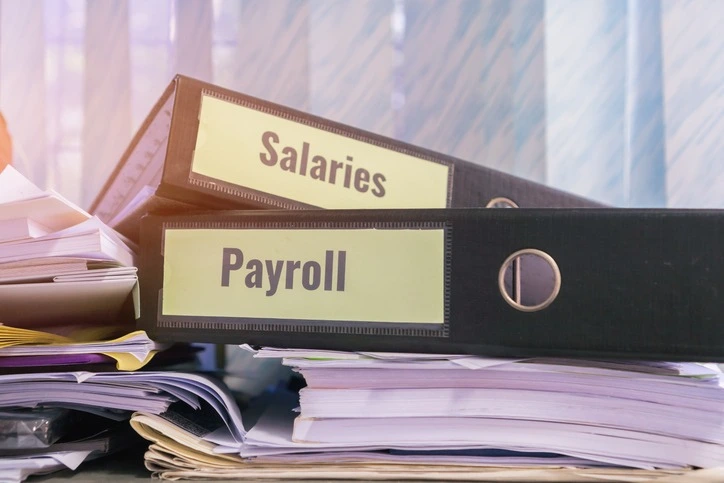As the payroll date draws near, business owners who undertake it themselves can often feel a slight sense of dread. It’s a time-consuming exercise which, unlike other jobs, absolutely can’t be put off if there’s a rush on, and the ramifications of lateness or errors can be serious. Not to mention the fact that employees are likely to be extremely unhappy if their hard-earned money doesn’t arrive in their bank accounts on the expected date!

What does payroll actually entail?
There’s more to the payroll process than simply paying wages or salaries. Running a proper payroll system ensures compliance with HMRC’s tax regulations; falling foul of these can be catastrophic for a small business. It’s an employer’s duty to provide accurate pay records within the necessary deadlines and fines for non-compliance can be severe. Payroll issues can also affect employee morale and performance and cause reputational damage to a business.
If you want to manage payroll in-house, first you’ll need to select payroll software; some businesses still handle it manually but using software such as Xero saves a great deal of time. You’ll then need to set up the categories within it which apply to your particular business and enter payment rates and tax codes. You may need sections for bonuses, sales commissions, sick pay or overtime payments.
When a new employee starts you must collect all the information you need, which includes their gross and net salary, full name and address, national insurance number and bank account details.
Wages and salaries – what’s the difference?
Many people think wages and salaries are the same thing, but there are considerable differences between the two, and your payroll will need to be set up to account for this.
A salary is a fixed annual amount which is payable at regular intervals, usually monthly, and tends to be a feature of full-time or regular employment. Wages are hourly or daily payments for work completed during the working day. Wages are a common method of payment in jobs where hours can vary, such as in casual or part-time work, and are common in sectors such as construction or retail.
Whether you use one or the other, or a mixture of both, you need to ensure correct records are kept.
Why are payment records so important?
Payment records aren’t just essential for tax purposes, although having them directly to hand when it’s time for the annual tax return will save a huge amount of time. An accurate overview of your salary budget is a must for future planning and forecasting for business growth. From an employee’s point of view, a payslip can be an important document if they need to demonstrate a record of employment and income, for example if applying for a loan or a mortgage.
Are there other aspects of payroll a business owner should know?
It’s a big subject! We can only talk about the basics within the confines of a blog, but pensions auto-enrolment is another major part of payroll. Every employer in the UK is legally obliged to provide a workplace pension scheme for staff over the age of 22 earning more than £10K, and contribute towards it. This is administered through payroll and adds another layer of complexity.
There just aren’t enough hours in the working day to do all this every month . . .
That’s where we come in. Outsourcing your payroll saves you time and money and frees you up to run your business. You’ll have confidence that your records are 100% accurate, and you’ll have a knowledgeable professional at the other end of the phone should you need clarification. We are highly experienced at liaising with HMRC, have access to all the main types of software, and provide friendly, individually tailored payroll services to all sizes and types of business.
If you think outsourcing your payroll could make a difference to your business, why not call our helpful team for a chat? Contact us on 01892 559480 or check out our website.









